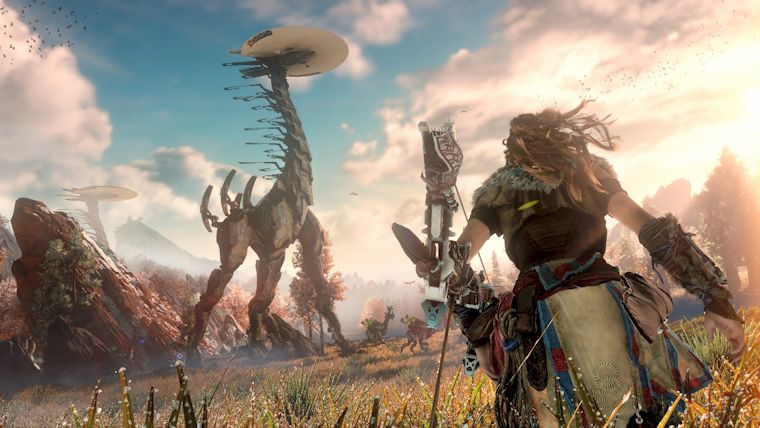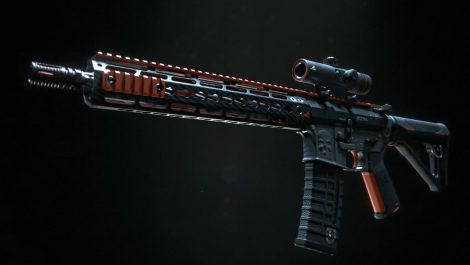
Horizon: Zero Dawn is finally available and there are bound to be tons of people playing it. While playing through the game, you will come across countless machines. There is one type that is will standout more than any other for their size, which are known as Tallnecks.
Tallnecks are based off of giraffes, which can easily be seen with its design that literally is described by its name. They are absolutely giant and will tower over Aloy easily.
As we’ve outlined in another guide, overriding most machines is a fairly simple process, but the Tallnecks are completely different from any others, as you have to actually climb them and they provide you with information on the in-game map.
There are five total Tallnecks found in Horizon: Zero Dawn, with each typically being in an area filled with enemies of some sort. Most of these are surrounded by machines, but one is even located around a bandit camp. As a result, you have one of two options. You can just kill all the enemies in the area first and then focus on the Tallneck, or you can try to be sneaky and take down the Tallneck stealthily.
To best go for the stealthy approach, make sure to have a stealth-focused outfit on and have the skills that will help you sneak by enemies unlocked if possible. Your goal is to climb up the Tallneck, though that can not be done directly from the ground by climbing up its legs.
Instead, what you need to do it keep an eye on the track of the Tallneck and find nearby platforms that are higher off the ground. Get up on said platform and jump onto the Tallneck’s back when you get a chance. After doing this, just climb up the rest of the Tallneck and override the machine at the top by holding down Triangle.
As you will notice, the giant world map in Horizon: Zero Dawn is mostly covered with fog at the start, but it will dissipate in parts as you explore more. However, overriding the Tallnecks will cause large sections of the fog to go away, as well as showing off some special locations on the map.
- This article was updated on March 8th, 2018



